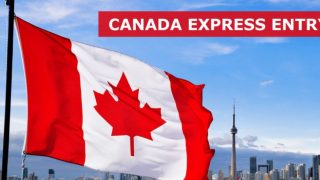
Over the years, poor budgetary allocations by government at all levels have been a big challenge in the development of the education sector in Nigeria. At the federal and state level, budget allocation to the education sector continues to decline as it fails to meet up with the UNESCO recommendation on budgetary allocation to the education sector. In 2016, the budget allocation to education at the national level was a paltry 8% of the national budget and in 2017, it decline to 6.14%. In 2017, Out of the budget presentation of N7.298 trillion, education got N50 billion out of which N398 billion is allocated to recurrent which shows an increase of 27.2% in the overhead cost in 2017 compared to 2016.
In 2016, 33 states of the federation allocated N653.53 billion (10.7 percent) of their combined total budget estimates of N6.1 trillion to education. Though in 2017, few states like Sokoto (the state earmarked 27.3% of N38,426,266 to education), Kwara, Nassarawa, and Ogun, etc. gave education the lion’s share of the presented state budget the state house of Assemblies while states like Imo, Lagos, and Jigawa gave little attention to education in their 2017 budget allocations. With the poor commitment of the government to the education sector at all levels, one begins to wonder how we will tackle the various challenges in the education sector or be competing to be among the top 20 world economies by the year 2020 by the poor budgetary allocations to the education sector when education is recognized worldwide as the bedrock of any given society.
Sometimes increasing allocation the education budget to me is not the issue but ensuring that our budgets are geared towards meeting our strategic goals and plans in the sector. With this I mean, if you increase the budget allocation and huge chuck is allocated to recurrent expenditures or wastages, have we really achieved the outcry for increase? Critically looking at the national education budget over the years even with the 2017 budget tagged ‘budget of recovery and growth’, with the huge frivolities and anomalies, does it really gear towards growth and recovery of the economy? Take for instance, presently in the education sector, some of the national key challenges in the sector are; out of school children, learning outcomes of pupils/students, teachers development, safe schools etc.
A quick look at the budget shows that the paltry capital budget are still not geared towards solving the problems rather huge chucks of money are allocated to wastages and enrichment of key officials. e.g. in the 2017 education proposed high level meetings and advocacy to discuss strategies in dealing with out of school children in 6 geo political zones with the permanent secretary is N60,000,000. So N60,000,000 is allocated just to have discussion meeting not even implementing any project to solve the issue of out of school children in Nigeria?
This is similar to other issues and you may ask, is this really a budget of recovery? What else could one say or imagine when you see huge budget to unclear budget headline e.g. discipline and appointment, grant to foreign international organization, strengthen global partnership for sustainable development, identity card, telephone charges etc. It has been argued that a total of N145.907 billion could be saved from frivolities and wasteful budget items in the 2017 national budget. This amount if saved could be used to increase the capital budget and salvage the economy now that the country is passing through recession.
Despite the beautiful names the budgets are tagged by the federal and state governments, moving forward and ensuring that our budget works for us, government at all levels need to take into consideration the following; Budgets should be clear and location stated for monitoring and tracking purposes, uniformed budget template should be discarded and budgeting should be according to needs, budget processes should be transparent through participation of all relevant stakeholders, and wastages should be minimized.
Ms. Chioma Osuji, Abuja


